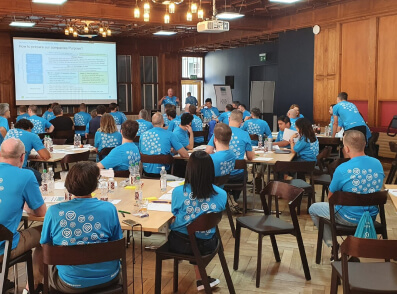Highly personalized data increasingly drive consumer health behavior. The rise of wearable health tech has given individuals unprecedented insight into their wellbeing. The evolution of health tracking devices allows individuals to compile information on everything from their heart rhythms to their menstrual cycles. As a result, these devices are not only providing useful information, but they are also driving changes in the behavior of individuals.
According to The Economist, the use of wearable fitness trackers in North America more than doubled between 2015 and 2021 and tripled in Europe and China during the same period. Experts project that more demand for health trackers will reach 400 million annually by 2026.

Advances in Wearable Tech
Early generations of these devices were built upon the step-counting idea behind simple pedometers. Individuals could use them to document their activity level on any given day, but as technology evolves, so too have trackers. Many of them have expanded their functions. For instance, The Economist reports that a new sensor device from Rockley Photonics can measure functions as diverse as hydration, sugar, alcohol, lactate (reflecting muscle inflammation from exercise), and much more in the blood. Some others can measure core body temperature, heart rate and rhythm, and blood pressure providing accurate results.
These devices can turn the individual into an active partner in their own health care. The data collected by wearable health tech, like heart rate, can even be transmitted to doctors for analysis and diagnosis. Providers can use the data for real-time assessment of treatments, a valuable tool for the ongoing treatment of chronic diseases.
Devices Prompt Lifestyle Changes
These devices also have the benefit of driving behavioral changes, as The Economist notes.
In the United States, nearly 80% of the overall disease burden is related to conditions exacerbated by lifestyle choices like tobacco and alcohol consumption, fast food or a sedentary lifestyle.
According to findings by Danish researchers, people who wear fitness trackers make modest but impactful changes to their activity levels. The insurer UnitedHealth found that consumers logged exercise on fitness trackers for six months, in comparison with gym attendance which typically falls off after two to three months.
Helping individuals maintain those changes is one of the next challenges for wearable tech.
Wearable devices can communicate with apps and remote systems. Many of the consumer apps on the market are ultimately not user-friendly enough to hold consumer attention.
However, the sheer number of downloads (5 million per day on the Apple App Store alone, according to The Economist) shows an appetite for fitness tracking platforms.
These devices can communicate with apps and remote systems. The exchange of information between wearables and smartphones, allows individuals to keep a record of their improvements. Seeing those changes helps individuals stay focused on their goals and maintain the changes.
Coordinating Devices with Digital Health Engagement Platforms
Insurers have an opportunity to customize consumer health platforms in a way that retains consumer interest and connects with the tech consumers are already using. As devices grow more sophisticated, so too will the health information they provide. This data will be invaluable for treating individual patients as well as assessing and predicting larger health trends.
At dacadoo, we have been monitoring trends in wearable health tech for over 10 years. Our comprehensive Digital Health Engagement Platform (DHEP) uses behavioral science and gamification tactics to motivate users to adopt and maintain healthier lifestyle choices. The platform is customizable and allows health insurers to build a user-friendly portal that individuals can use to synchronize the data from the wearables to give themselves and their health care providers a more robust picture of their overall health. At the same time, the platform collects valuable demographic, geographic, and longitudinal data that insurers can use to refine future plans.
To learn more about how dacadoo DHEP works with wearable tech, please book a free consultation.






















